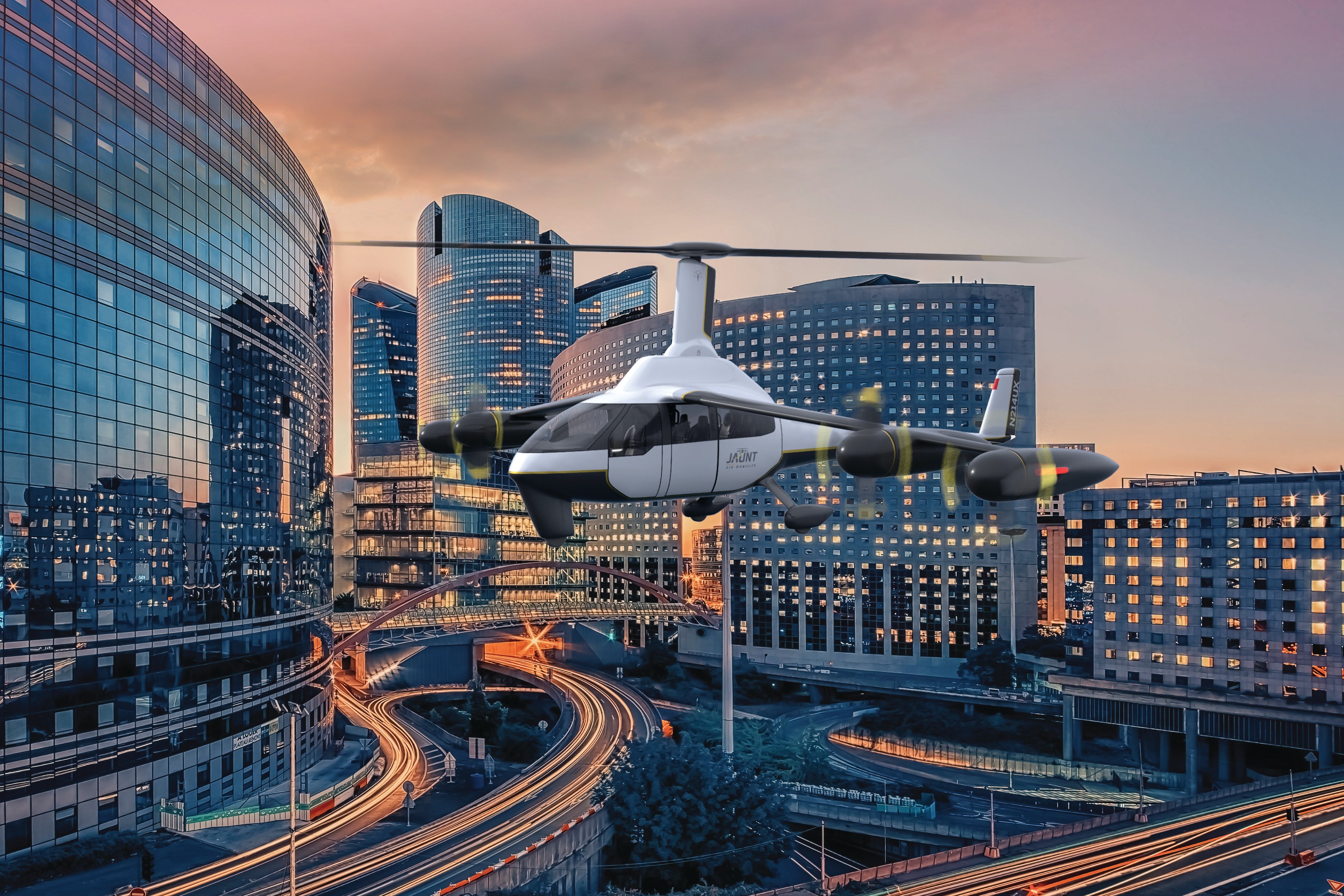Click Here to View This Page on Production Frontend
Click Here to Export Node Content
Click Here to View Printer-Friendly Version (Raw Backend)
Note: front-end display has links to styled print versions.
Content Node ID: 419013
Training and simulation group CAE is producing an engineering simulator to support Jaunt Air Mobility’s development of the Journey eVTOL aircraft. In an agreement announced today, CAE will design and develop the Jaunt Aircraft Systems Integration Lab (JASIL) to support testing of systems and the five-seat aircraft itself as the company seeks to complete type certification under FAA Part 29 rules by the end of 2026.
The JASIL facility is expected to be in Canada, possibly at CAE’s headquarters in Montreal. Last week, Jaunt announced that it will base its design and manufacturing operations in the Montreal area, following the formation of a local subsidiary called Jaunt Air Mobility Canada.
According to the partners, the JASIL will accelerate flight deck design and system development, reducing the time needed for flight testing. “The JASIL program is designed to de-risk the aircraft program’s schedule and manage development costs by identifying integration issues and proving failure modes early in the program,” they said in a press release.
Type certification work is due to get underway in 2023 when Jaunt expects to be ready to start flight testing a full-scale prototype of the Journey. In addition to this model, the company intends to develop versions of the aircraft that can be used for applications such as military support, cargo flights, and emergency medical support. Entry into service is anticipated in early 2027.
Within the next few months, Jaunt expects to confirm an agreement with a partner for the training of eVTOL pilots. CAE is one of the aviation sector’s two largest flight training groups.
Meanwhile, Crane Aerospace & Electronics has agreed to support Jaunt’s existing partner BAE Systems to develop the power management system for the eVTOL aircraft program. Crane will focus on integrating high-voltage power conversion, distribution, and control.
Jaunt CEO told this week's Vertical Flight Society Forum 77 event that a technology demonstrator for the company's patented slow rotor system has no logged over 300 flight test hours. It has demonstrated the reverse flow performance of the main rotor.
The Journey is expected to have a range of around 100 miles and a cruise speed of 175 mph. It will carry four passengers in addition to a pilot. It is expected to have a 55 dB noise profile during cruise, rising to 69 dB during takeoffs and landings.
While the initial aircraft will have an all-electric propulsion system, Jaunt is exploring a hybrid-electric alternative to extend range. It is working with VerdeGo Aero on this system.
